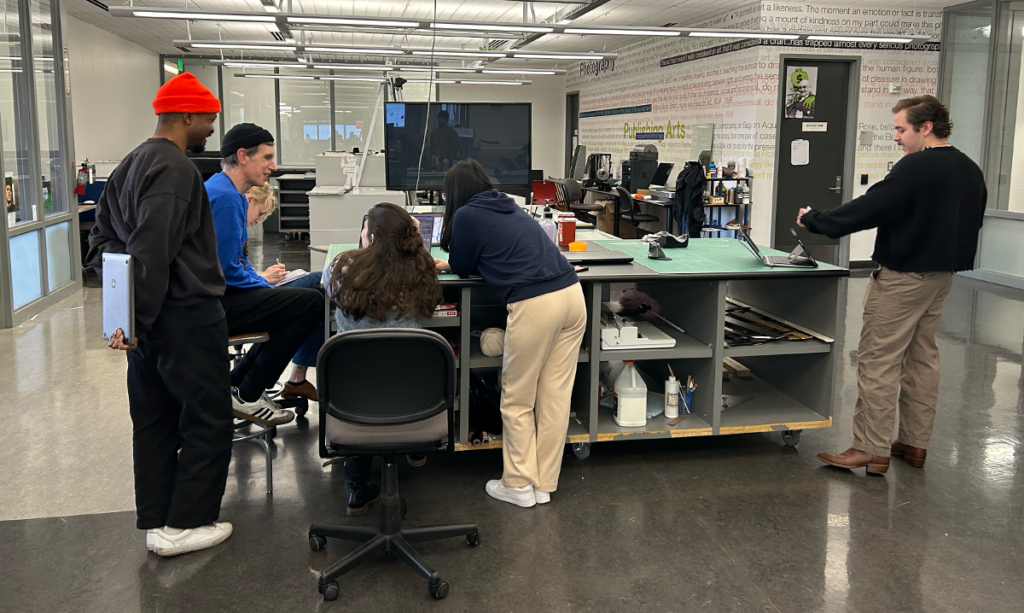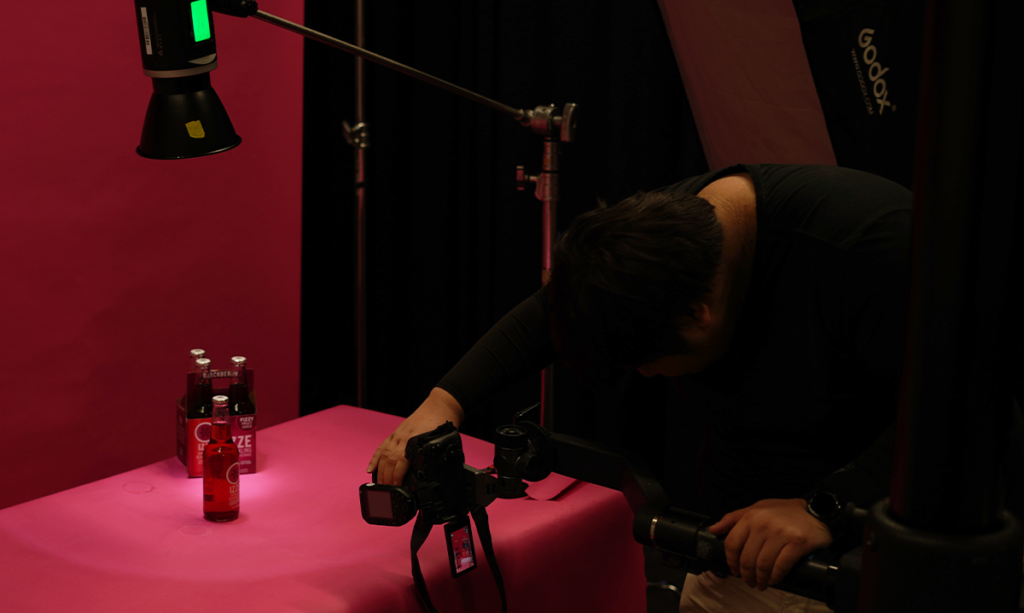The Broadway Edison building is the hub for Seattle Central College. The sprawling five-story building is the base of operations for many student services and administrative offices as well as the various arts, humanities, and social science programs. Programs like Apparel Design and Development, Visual Media, and Graphic Design require students to use expensive equipment they might not have access to off campus.
For students like second-year visual media student, Brooklyn Schugar, not having access to the building on weekends means staying late on weeknights.

“I have limited time after my 5-hour class Monday through Friday to do my actual assignments. For my lighting classes, every week we are given an assignment that is mandatory to be done in a studio setting that I only have access to at school,” Schugar said.
Not all students have the option to stay late when necessary, either. Graphic Design Adjunct Instructor, Julia McNamara, says the lack of access to equipment and study space on non-instruction days is adding stress to a population of students who are already stretched.
“On top of going to school, many more of our students are holding down jobs, parenting, and caregiving than in years past. Managing a work schedule on top of homework is a heavy lift, and not having Saturday access definitely adds a roadblock in their project planning,” says McNamara.

Second-year graphic design student Jon Pendleton says opening the facilities on weekends would be “a game changer.”
“As a full-time student and part-time worker, I don’t have all my weeknights free to do all the types of homework I have. Oftentimes I end up doing lots of my homework on the weekend. If I knew I could come to school during those long study sessions on Saturday or Sunday, I’d have a world of resources and space ready for me on campus that I otherwise wouldn’t get in my tiny studio apartment,” Pendleton said.
The building wasn’t always closed on the weekends. Long-time Graphic Design instructor and Department Chair, Marc Salverda, says “previous to COVID, the building was open every Saturday—even during breaks.”
When the pandemic hit, the campus closed, and all instruction moved online. Classes were held through Zoom, and no one could access the building or its resources. Since then, in-person instruction has resumed and the facilities are accessible throughout the week. Conversely, there are fewer students in attendance. According to a report by the Washington Student Achievement Council, the number of recent high school graduates enrolled in a two-year college dropped from 25% to 19% from 2019 to 2021.

In recent years, Seattle Colleges has faced budget cuts and a multi-million dollar deficit, leading to a reduction in staff and resources. Tuition for students has also increased. The drop in attendance coupled with the budgetary shortfall leaves doubt as to whether there would be enough traction to justify the cost of opening the campus an additional day.
A lack of security personnel also affects building access. Head of security at Seattle Central, Sean Chesterfield, says hiring for the position can be challenging due to the high standards required to be qualified.
“Campus Security staff are required to have at least two years of Campus Security and/or police experience or have an associate degree in Criminal Justice and additional training to be qualified,” Chesterfield said. “These standards are in place because of the inherent risk of the job and the crime profile of the area.”
Retaining qualified candidates has become as difficult as recruiting. One of the security officers hired this year has since left the position for a different opportunity. Chesterfield is now faced with filling the vacancy with a dwindling pool of qualified candidates.
“In years past, the competition for open Campus Security Officer positions was fierce, but now we are lucky to have one or two qualified applicants apply. This may be attributed to the higher cost of living in the Seattle metropolitan area as well as individuals who do not pick security work as a long-term career,” Chesterfield said.
Despite the challenges, he remains hopeful that they can resume Saturday building access by next quarter. Chris Sullivan, executive dean of Seattle Central College, did not respond to The Seattle Collegian’s request for comment.
As Chesterfield noted, money doesn’t stretch far in Seattle. According to The Cost of Living index on Payscale.com, Seattle’s overall cost of living is 50% higher than the national average, with housing costs rising to 111% above the national average. A job listing on Indeed for Central’s Campus Security cites a yearly salary range of $45,564 to $61,176, based on experience. The lower end of that spectrum amounts to $21.86 per hour, which is comparable to the wages for delivery drivers and grocery clerks. The high standard for employment, potential risks of the job, and paltry salary amidst Seattle’s rising cost of living leave little wonder as to why there are fewer qualified applicants.
With Seattle Colleges facing its budget deficit, hiring new security personnel to open the building to students on the weekend is a tall ask. Students are paying more for less building access than students had in previous years. The success of Seattle Central College is contingent on the success of its students.
Author

Joel is an art damaged music nerd occasionally hugging trees and decrying the brutal nature of capitalism. He studied cultural anthropology and art history as an undergrad and is pursuing his AAS in graphic design at the Seattle Central Creative Academy. When not working on art, music, or writing, he’s usually hiking, biking, or lounging in his hammock reading manga.







Be First to Comment